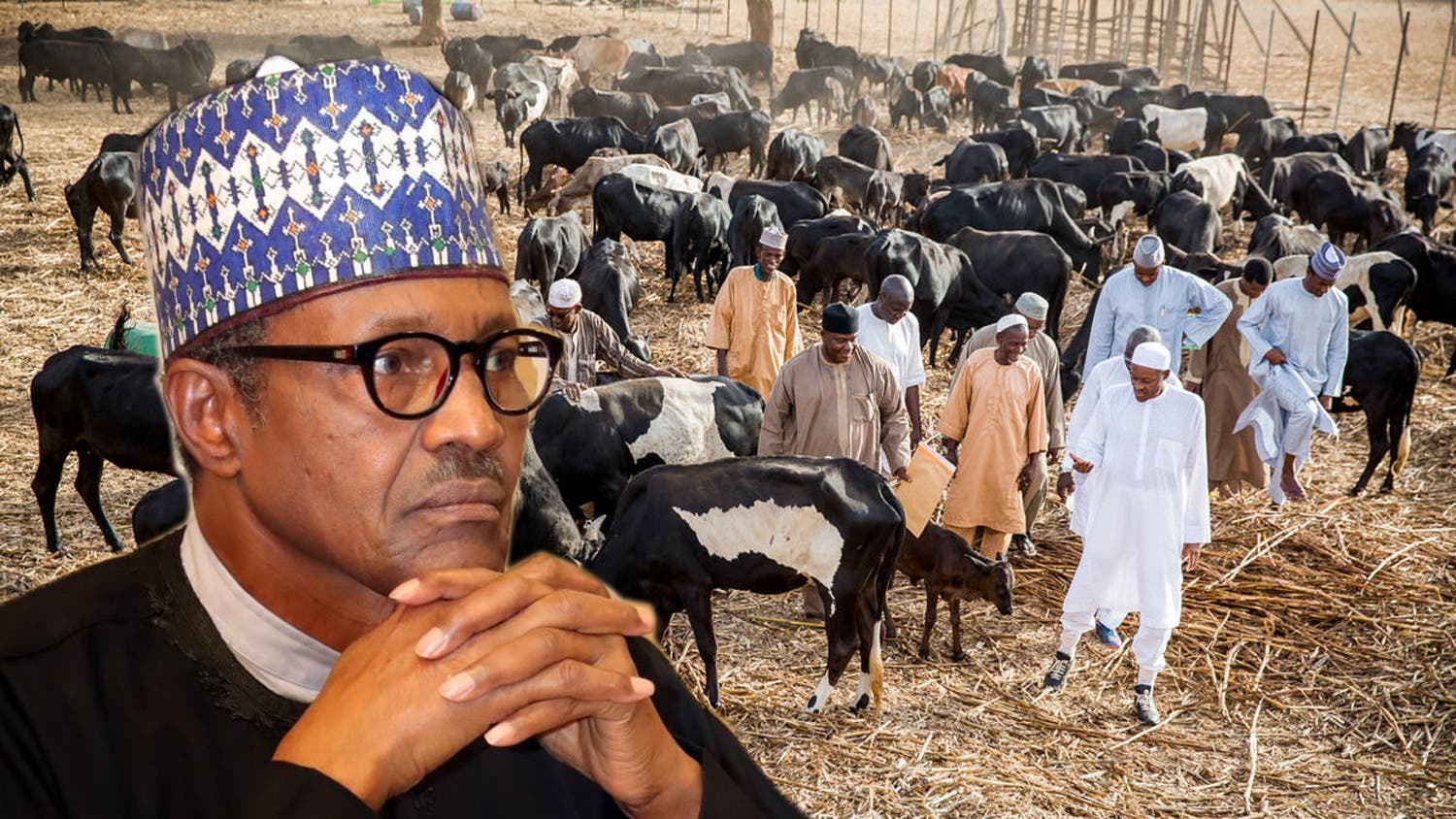Five Times President Buhari Has Ruled In Favour Of Fulani Herdsmen Over Nigerians
President Muhammadu Buhari has faced criticisms on numerous occasions for making policies perceived to be in favour of herdsmen who are largely of Fulani extraction.
Many have attributed the president's alleged bias for herders to the fact that he is a Fulani man.
Since the inception of the Buhari-led administration in 2015, there has been a deliberate focus on the implementation of policies that favour herders, open grazing and settlement for Fulani herders.
The reasons for this are not far-reaching: the recurring conflicts between herders and farmers with unexplainable attacks by the Fulani herdsmen on farmers in Nigerian states.
This has become particularly worrisome; threatening the unity and security of the country with the fear of war and ethnic invasion.
Attempts by the Buhari government to proffer solutions have not helped matters as such often leave many parts of the country disgruntled.
Proposed policies such as cattle colonies, cattle routes, grazing reserves, and Rural Grazing Area (RUGA) settlements are examples of such.
SaharaReporters examines some policies initiated by the Buhari administration believed to be geared towards favouring cattle rearing.
Cattle Colonies
In 2018, the Federal Government, through the then Minister of Agriculture and Rural Development, Audu Ogbeh proposed to establish cattle colonies in different parts of the country.
Ogbeh had said the cattle colony project will start immediately following the offer of five hectares of land by 16 states in the country, adding that President Buhari had promised to help the ministry with money for the project.
According to Ogbeh, facilities will be provided to take care of the herdsmen and their cattle, which they (herdsmen) have said if water and grass were provided, they would not be moving with their cattle.
However, this was widely rejected as Nigerians expressed fears that the policy was an attempt by the federal government to forcibly collect land from citizens and hand them over to herdsmen.
RUGA
In May 2019, Buhari sought to implement the Rural Grazing Area (RUGA) policy which the government claimed was intended to resolve the conflicts between nomadic Fulani herdsmen and farmers
The policy was developed by the National Livestock Transformation Plan under the Nigeria Economy Council to curb the conflict between farmers and Fulani herdsmen.
However, it had been met with a wide rejection by Nigerians, who opined that the RUGA policy was aimed at 'stealing' their lands for a section in the country.
State governments, in particular, Southern State governments had picked against the RUGA policy stressing that there was no section of land in their states that will be ceded for that purpose.
Water Resources Bill
In 2017, the Buhari-led Nigerian government sought that the National Water Resources Bill be passed into law by the National Assembly.
The bill, if implemented, will transfer the control of water resources from the state government to the Federal Government.
However, there was a huge outcry from Nigerians who claimed the bill was going to polarise the country along ethnic lines. Many Nigerians also decried the projected denial of access to potable water to the majority.
The bill was thereafter dropped by the National Assembly.
It was, however, reintroduced in 2020 by the Chairman of the House of Representatives Committee on Rules and Business as an executive bill.
With the reintroduction of the bill, stakeholders accused the Federal government of seeking to take over the water resources of some sections of the country to implement the rural grazing (RUGA) policy through the back door.
Grazing Reserves
Meanwhile, in August 2020, the Federal Ministry of Agriculture and Rural Development reportedly earmarked N2.5 billion for the development of the Wawa/Zange grazing reserve in Gombe.
The director in charge of the Gombe office of the ministry, Musa Inuwa, said the money earmarked was for the construction of boreholes, veterinary clinics, schools, hospital among other social amenities in the grazing reserve.
He said the Wawa/Zange grazing reserve occupied 130 hectares out of which five hectares were used for the planting of pastures now ready for grazing.
On June 2, the Federal Government announced that it would revive grazing reserves in 21 out of the 36 states of the federation.
The current Minister of Agriculture and Rural Development, Sabo Nanono, disclosed this during a webinar on ‘Nigeria dairy industry’, organised by the Policy Centre of Abuja Chamber of Commerce and Industry to mark World Milk Day, 2021 with the theme, “Sustainability in the dairy sector.”
Nanono, who spoke through a representative, Mercy Otiteh, stated that the agric ministry had mobilised contractors to various sites across the country with a target to revive the grazing reserves.
The minister said work was presently ongoing with the monitoring team supervising the progress of works at the various centres.
The minister said the Federal Government was committed to providing infrastructures that would make the reserves suitable for pastoralist thereby increasing Nigerians local dairy production capacity.
He said the government was collaborating with local and international partners to improve the relationship between farmers and herders through the revitalisation of the grazing reserves urging Nigerians to support government efforts in this direction.
However, heated conversations as to the necessity of the grazing reserve have trailed the announcement.
Reopening Of Grazing Routes
On June 11, Buhari okayed the return of open grazing practised during the First Republic where herdsmen used designated grazing routes to move cattle to several parts of the country.
Speaking during an interview with Arise TV, the president said he had asked the Attorney General of the Federation, Abubakar Malami, to begin the process of recovering land from persons who have converted cattle grazing routes for their personal use.
Many believe the directive was an ostensible response to the decision of the 17 Southern Governors to ban open grazing.












Post a Comment